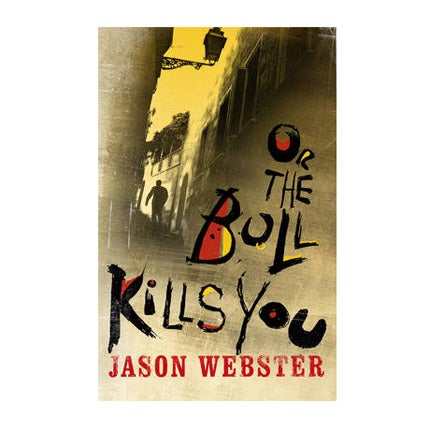Or the Bull Kills You, By Jason Webster<br/>The Red Coffin, By Sam Eastland
From the sizzling bullring of Valencia to the frozen steppes of Soviet Russia, two thrillers find that exotic climes make crime more interesting

Finding an engaging detective with whom to regale readers with ongoing case notes has been the holy grail for both authors and publishers ever since Agatha Christie settled Miss Marple into St Mary Mead.
Even reputable literary novelists such as Susan Hill are now trying their hand. This month, two new additions to the usual suspects find that an extreme location can add a lot to a tried and tested formula.
"Bullfighting," wrote Ernest Hemingway, "is the only art in which the artist is in danger of death and in which the degree of brilliance in the performance is left to the fighter's honour." The degree to which "art" and "honour" have any place in the proceedings has always been up for question and it is in the middle of this debate that Valencia's Chief Inspector Max Cámara is presented with a particularly incisive slaying.
Cámara arrives on the crime scene in Jason Webster's Or the Bull Kills You, a debut that has the pot-smoking sleuth track the killer of a celebrity matador at a time when the sport is on the brink of being banned. Jorge Blanco is found in the centre of the city bullring, yellow and red banderilla darts hanging from his flanks and his own sword skewering him to the sand.
As the deafening fire-crackers of the mascleta festivities erupt in the alleyways, Cámara finds even more combustible elements among the Anti-Taurino League and the Town Hall's administration. This is a city of café gossip to rival Aurelio Zen's Rome. "Valencia, rich, clean and prosperous, wanted to put forward a different face to the new wave of visitors, usually exploring the city for the first time. The bullring, that temple of death at its heart, would be converted into a shopping complex." It seems that progress is a murderous process.
The Latin temperament fuels Webster's fine novel. I'm not sure that one would find the same hot-blooded homicide evolving from the fox-hunting dispute; a claret-cheeked Yorkshireman found face down in the moorland mud doesn't have the same heady cache. Webster, who has written several studies of Spanish culture and is married to a flamenco star, knows his setting well. He mixes the various ingredients of Valencian tradition, political factions and personal intrigue into a memorable paella of Mediterranean noir. Its spice comes from the ironic flourishes. Cámara, the forty-something "bravo" leading man, believes in animal rights and has fertility issues. A Spanish cop firing blanks? Ay caramba!
And so we shift from the sizzle to the shiver, from the parched Praças to the frozen steppes of the Russian badlands. In The Red Coffin, the second outing for Sam Eastland's introspective Inspector Pekkala, the once Imperially-appointed detective is now firmly trapped in a post-Revolution rut, in his new guise as Comrade Stalin's special investigator. It's an intriguing pact with the devil which Eastland (the alter-ego of a respected novelist whose identity is firmly embargoed) gradually develops with each turn of the Soviet screw. "When Stalin laughed, cajoled and, if that didn't work, threatened, it was, for Pekkala, like watching an exchange of masks in a Japanese Kabuki play."
It is 1939, and Russia's hopes of dashing German invasion plans rest on the production of a fleet of supertanks in an isolated compound out in the pine and birch forests. When the iron beasts' enigmatic inventor, Colonel Nagorski, is found crushed beneath the tracks of one of them, Pekkala is set on the trail of a shadowy, pro-Nazi organisation called the White Guild.
Eastland has a keen eye for the sensual, brutish, elemental details of the time and place: uniforms are cut from cloth "the same greyish brown as the fur of a deer in the winter" and grimy communist police offices fog up with the "odour of boiled ham, cloves and gravy". To take the edge off all the purges and gulags, there is an amusing leitmotif in the guise of Pekkala's culinary-minded assistant, Major Kirov. With one eye on his boss and the other on menu options, Kirov is a humanistic, philosophical Watson to Pekkala's icy, Romanov-loving Holmes.
An unapologetic Boy's Own quality pervades the action – with Pekkala wielding both the Tsar's personal revolver and a half-hearted resistance to letting people in – but it never slips into cartoonish parody. This is a pacy adventure for those who like their tales told in the John Buchan style, with a shot of vodka downed and a fully loaded Webley at the ready.
Different crimes, different climes, but in these books Webster and Eastland each show, with considerable panache, that there is plenty of life still to be found in the business of literary killings.
To order any of these books at a reduced price, including free UK p&p, call Independent Books Direct on 08700 798 897 or visit independentbooksdirect.co.uk
Join our commenting forum
Join thought-provoking conversations, follow other Independent readers and see their replies
Comments
Bookmark popover
Removed from bookmarks